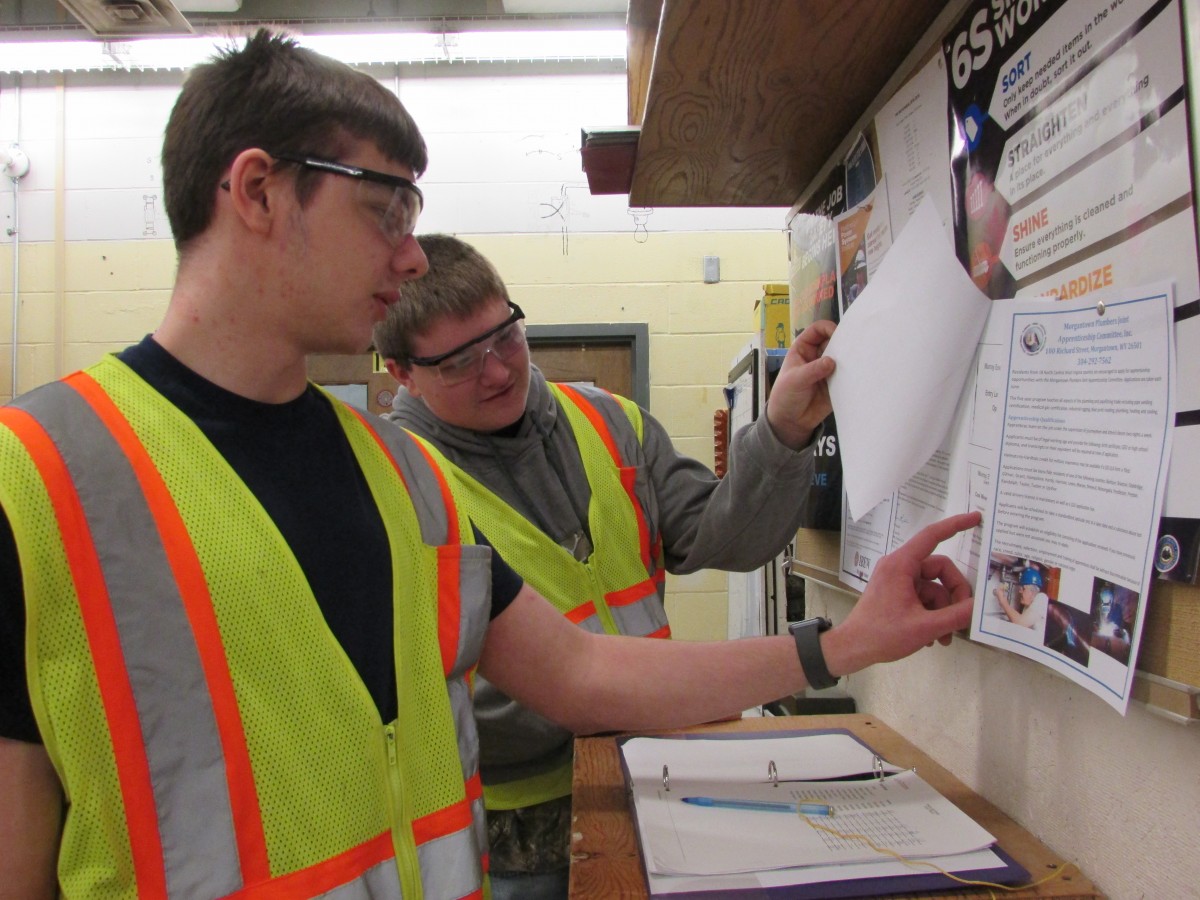KINGWOOD — A skills gap is creating opportunities for Preston High students to get free training and good-paying jobs soon after graduation.
At the most recent Preston County Board of Education meeting, Colton Plum, a 2018 Preston High School (PHS) graduate, talked about one of those programs, FirstEnergy’s Power Systems Institute (PSI).
Eyad Gheith, with FirstEnergy’s communications office, said PSI was established in 2000. The two-year program combines classroom learning with hands on training. In West Virginia, Pierpont Community & Technical College and Blue Ridge Community & Technical College offer PSI training.
Students who complete the program earn a degree in electric utility technology. This can translate to jobs as a line worker or substation electrician with Mon Power or Potomac Edison.
About 1,700 students have graduated from the program since 2000. Currently 53 are enrolled in the Mon Power program and 27 for Potomac Edison. Since 2000, a total of 118 students have graduated to jobs with Mon Power and 33 with Potomac Edison.
Tuition, books and lab fees are paid through PSI. After their second semester, students are also required to do a paid, 10-week, 40 hours per week, evaluated field experience.
It’s their first taste of what the job will entail, Gheith said.
“The program was developed because of natural retention,” he said. “People retiring. It is labor intensive. They’re out in the field whether it’s freezing rain, snow, so it takes a specific candidate to sort of do this work. It’s not for everybody.”
But for those who can do the job, pay and benefits are good, Gheith said. Graduates start at about $60,000 annually, plus overtime.
That’s one of the attractions, said PHS junior Chase Loughry, who is considering PSI.
“This is where you make the big money,” Loughry said. “The money and the opportunity to learn more. That’s pretty good money coming right out of high school.”
PHS electrical technology teacher Jason Curry said a skills gap is occurring everywhere as trained workers retire and no one is there to fill the jobs. For many years, all students were urged to attend college. Now there aren’t electricians and others to fill the gap, he said.
He and Roger Marshall have about 30 completers in the electrical program each year. Students can take it two to four years. After four years, they can graduate as journeymen electricians.
The classroom is a simulated workplace. Students undergo random drug testing and must explain absences, just like at work.
The big demand for electricians now is in the oil and gas field, Curry said. Industrial and commercial electricians are also needed.
“The possibilities right now with this senior group are endless,” Curry said. He encourages students to look at the apprenticeships offered by unions and employers and programs like PSI.
“In any of these apprenticeship programs, they’ll be making more in four years than most college graduates,” he said.
Plum encourages other students to follow that advice.
“I was a certified welder and electrician when I graduated from Preston High School,” Plum told the board. Now he’s at Pierpont in the PSI program.
“The career skills I learned through the CTE [career and technical education] program and simulated work place at Preston High prepared me for the FirstEnergy program,” he said. “The academic skills I learned at Preston High allowed me to be on the dean’s list at Preston and Pierpont College this semester.”
In order to get into the PSI program, applicants must pass a nine-step selection process, Gheith said.
It begins with attending program information sessions and includes placement testing, technical evaluation, background screening, physical screening, school selection process, interview and enrollment.




